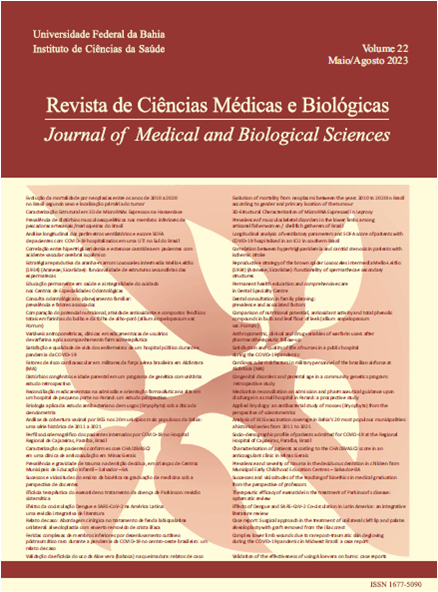Dental consultation in family planning: prevalence and associated factors
DOI:
https://doi.org/10.9771/cmbio.v22i2.53005Keywords:
Family Planning, Prenatal Care, Dental Care, Unified Health Syst, PregnancyAbstract
Objective: The objective was to verify the prevalence of dental appointments during family planning and associated factors by pregnant women who underwent prenatal care in the basic network of a municipality in southern Brazil.
Methods: Non-probabilistic sampling included 164 pregnant women with planned pregnancies. Data collection was carried out online, using an electronic questionnaire containing sociodemographic and pregnancy-related questions, based on the Women's Questionnaire, adapted from the 2006 National Demographic and Child and Women's Health Survey. analyzed, observing the relative and absolute frequencies of the variables.
Results: The mean age of pregnant women who underwent family planning was 27.9 years (SD ± 5.85) and only 35.4% had a dental appointment during planning. Those who sought help to become pregnant were more likely to have a dental appointment (OR=2.089, 95%CI 1.047-4.168), as were those who had dental problems during pregnancy (OR=2.622, 95%CI 1.278-5.377) during planning familiar.
Conclusions: The findings of this study showed a low prevalence of dental appointments in family planning. There was a significant association between pregnant women who looked for a professional to get pregnant and those who had dental problems during the gestational period and the outcome variable 'completion of the dental appointment' in family planning.
Downloads
Downloads
Published
How to Cite
Issue
Section
License
Copyright (c) 2023 Journal of Medical and Biological Sciences

This work is licensed under a Creative Commons Attribution 4.0 International License.
The Journal of Medical and Biological Sciences reserves all copyrights of published works, including translations, allowing, however, their subsequent reproduction as transcription, with proper citation of source, through the Creative Commons license. The periodical has free and free access.


